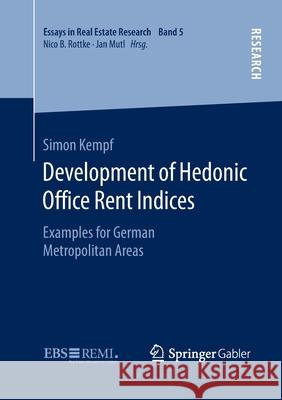Development of Hedonic Office Rent Indices: Examples for German Metropolitan Areas » książka
topmenu
Development of Hedonic Office Rent Indices: Examples for German Metropolitan Areas
ISBN-13: 9783658140830 / Angielski / Miękka / 2016 / 371 str.
Kategorie:
Kategorie BISAC:
Wydawca:
Springer Gabler
Seria wydawnicza:
Język:
Angielski
ISBN-13:
9783658140830
Rok wydania:
2016
Wydanie:
Softcover Repri
Ilość stron:
371
Waga:
0.58 kg
Wymiary:
23.39 x 15.6 x 2.16
Oprawa:
Miękka
Wolumenów:
01
Dodatkowe informacje:
Wydanie ilustrowane











